|
TRANSLATE THIS ARTICLE
Integral World: Exploring Theories of Everything
An independent forum for a critical discussion of the integral philosophy of Ken Wilber
 David Christopher Lane, Ph.D.
Professor of Philosophy, Mt. San Antonio College Lecturer in Religious Studies, California State University, Long Beach Author of Exposing Cults: When the Skeptical Mind Confronts the Mystical (New York and London: Garland Publishers, 1994) and The Radhasoami Tradition: A Critical History of Guru Succession (New York and London: Garland Publishers, 1992). David Christopher Lane, Ph.D.
Professor of Philosophy, Mt. San Antonio College Lecturer in Religious Studies, California State University, Long Beach Author of Exposing Cults: When the Skeptical Mind Confronts the Mystical (New York and London: Garland Publishers, 1994) and The Radhasoami Tradition: A Critical History of Guru Succession (New York and London: Garland Publishers, 1992).
THE AGNOSTICS
Thinkers in an Indeterminate Cosmos
Introduction |
Isaiah Berlin |
Charles Darwin |
John Dewey |
Enrico Fermi |
David Hume |
Edmund Husserl |
Thomas Henry Huxley |
Thomas Kuhn |
Lynn Margulis |
John Maynard Keynes |
G.E. Moore |
Karl Popper |
Michael Schmidt-Salomon |
Herbert Spencer |
Leo Szilard
ISAIAH BERLINJoshua CastromayorIsaiah Berlin was a Russian-Jewish philosopher who was considered to be one of the great thinkers of his generation. Berlin was widely known as an agnostic philosopher, since he did not believe that humans are capable of achieving a solid explanation to the world and the reason for everything that arises. This idea of ultimate unknowability was essentially one of the cores of Berlin's thought process in philosophy. He explained that it would be impossible to truly know the answer of our existence and everything around it. If statements and rules were able to be reduced into one sentence, then they are by necessity incorrect and thus lose their validity. The reason such reductionism doesn't work is because the world and its operations are too complex and varied. There are so many variables that will go into every action that takes place. Berlin believe that it is dangerous if our reasoning becomes stale and with a tendency for simplicity for its own sake. 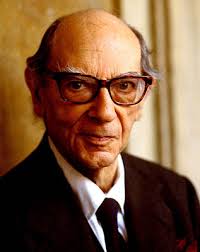 Isaiah Berlin The rules that have been created by society were all born from idealized versions of human behaviors. Although Berlin recognizes that humans are free to make the choices they desire, such options will be bound to their respective roles in life. This view can be best summarized in a Koan-like aphorism, “People are able to make their choices, but their life is determined.” Berlin's thought process and philosophy was centralized around pluralism and liberalism. He never believed in one simplistic answer to be able to explain the universe. He thought that such simplistic statements about complex systems were dangerous for society. If society were to believe those claims, he thought the close-minded assumptions would become too misleading. Pluralism takes into consideration that there does not exist an exact and consistent method to finding the truths of our universe. It emphasizes that there are many different ways to approach the unsolved mysteries that exist. Pluralism was so important to Berlin because it was key to his humane view on life and the interactions between humans. In his eyes, he saw that pluralism would enable an understanding of people's differentiating moral views. As he explained, “Few things have done more harm than the belief on the part of individuals or groups (or tribes or states or nations or churches) that he or she or they are in sole possession of the truth: especially about how to live, what to be and do - and that those who differ from them are not merely mistaken, but wicked or mad: and need restraining or suppressing.”
Berlin saw philosophy as a valuable tool for society. He argued that we should not accept something just because it has been established as the normality. To Berlin, philosophy was solely concerned with questions that had neither an answer or a solid method of solving the question. His views on philosophy can be reflected throughout the entire timeline of our existence. Wars, protests, and revolutions are born from disagreements and calls for change. They question the status quo. Through the power of philosophy and his liberal views, he showed the world that morals and behaviors developed by societies should still be questioned. He does not want individuals to consider things 'unnatural' due to the sole fact that it is not the normality in the society. These views are connected to his thoughts on free will and how societal formalities are developed. Isaiah Berlin believed that human nature was the primary variable that constructed societies' moral thinking. He recognized that humans have the ultimate power of free choice. This power of free choice allowed human nature to express itself. In the end, we cannot pinpoint who has the best moral values, because we do not know what values are truly correct. Berlin stated that nobody can know any truth without doubts. There are too many possibilities and varying factors that go into finding the truth about our universe and how humans should interact with one another. When someone acts in a certain way, it cannot be explained solely by external causes. Everyone contains their own special characteristics and internal drives that will form their future. These special characteristics and unique drives are the instruments that make one's life determined. They are bound to a future due to the influences and structures embedded in them. This sounds counteractive to Berlin's belief that humans have the freedom to choose, but the two concepts actually go hand in hand. Although he believed that one's life is to be determined, he still thought that they can still make active choices throughout their lives to choose whether or not to do something. If one is given an opportunity, they still have the option to take the opportunity or reject it. Berlin defined harmony as the state where everyone in a society knows their purpose and either attains or works to attain that purpose. Disharmony was defined as the times when one becomes disengaged from their set purpose, either from external or internal factors. Berlin takes into consideration that society may have become more forgiving because some actions are considered to be things people could not help doing. Actions some people think are normal may be regarded as a mental illness to others. The right and wrong is decided by the society that surrounds an individual. This sort of thinking links to Berlin's famous concept of positive and negative liberty. Liberty is defined as the state of being free within society from oppressive restrictions imposed by authority on one's way of life, behavior, or political views. Berlin added that there are two types of liberty that are available to people. This would either be positive liberty or negative liberty. Positive liberty referred to a person having the chance to achieve their goals no matter who is or is not interfering with them. Many people take this definition of positive liberty as what liberty should be. There is still the case of negative liberty which could also be present in society. Berlin defined negative liberty as the chance to work within a space where nobody can interfere. By definition, negative liberty is more suffocating and limiting than positive liberty. It is possible for one to obtain negative liberty without positive liberty. If one has positive liberty, the restrictions in negative liberty are nonexistent. Yes, negative liberty is still given the opportunity to conduct their freedom, but is limited by the amount of opportunity available. One that lacks education or healthcare has negative liberty. If someone has the opportunity to obtain their needs, they are subjected to positive liberty. Berlin's concept of positive and negative liberty could be used to argue what societies should provide and how they could better operate. America was built due to the search for freedom and liberty. Although citizens are promised liberty, some may be subjected to an unexpected type of liberty. Societal factors may lead many people into the category of negative liberty, even if they expected to have the freedom of positive liberty. This concept by Berlin questions the systematic power of governments and the reality in which many people truly reside in. Berlin's powerful views on society and human interactions questions the amount of freedom and knowledge that are truly available. His agnostic thinking pushed ideas of pluralism. He used philosophy as a tool to counteract societal norms and pushed people to question rather than accept. He still believed in the natural sciences but wanted people to question the human sciences and showed people that we cannot be certain of who is right and who is wrong. He would question why a psychologist could state that someone was ill due to the fact that they have different perceptions of what is normal. Berlin recognized that the questions to be analyzed in philosophy are not meant to have a clear answer. They should also have a solution method that is unknown too. His thoughts on free will and determinism further showed that we as humans cannot truly know what lies at the end. Positive and negative liberty shows that many factors go into one's 'freedom.' Berlin's works shined a light on how societies and humans interact with each other.
Further Reading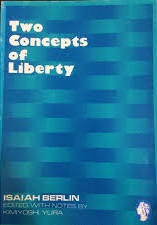 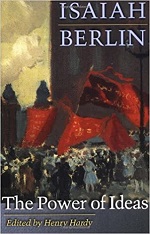 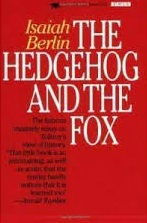 FROM THE INTRODUCTION | DAVID LANE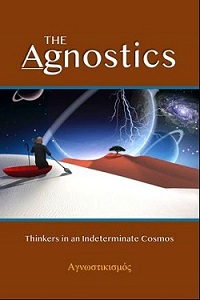
Often in the philosophy classes I have taught in undergraduate and graduate school, I would bring up this point of “unknowingness.” Pointing to a crumpled piece of writing paper, I would ask the class, “What is this?” Almost in unison, the students would respond, "A piece of paper." Taking this as my cue to lead into a deeper philosophical investigation of materialism, I probed further, "Yes, but what is that?” Catching my drift, one student invariably answered, “Oh, it is actually a transformed sheet of wood.” Not wanting them to stop there, I asked, “And wood is made of what?” “It's comprised of molecules," the more scientifically oriented students would shout. Connecting to the now forgotten inner space ride at Disneyland, which takes one through an imaginary voyage inside a snowflake molecule, I queried, “But what is a molecule made of.” By this time, we had gotten down to the subatomic level, and our words began to betray our modicum of knowledge (electrons, protons, quarks, lucky charms, superstring). The final question I asked was quite simple, but given the line of investigation it led to some severe complications: What is matter? Well, it should be obvious to the reader as it was to my class and to myself that there's only one truly appropriate response, “I don't know.” Now, this is exactly the response not only of most mystics, but most quantum physicists as well. As Sir Arthur Eddington, the distinguished astronomer put it, “Something unknown is doing we don't know what!” To be sure, mystics have said that the world (or matter) is nothing but consciousness. But, what is consciousness? Not even a sage as enlightened as Ramana Maharshi of South India could answer that question. To such queries, Ramana would often sit in silence. Ultimately, matter leads to consciousness and consciousness to God or Nature (with a capital N) and both to Mystery. However, no matter how you define it, slice it, categorize it, blend it, intuit it, the fact remains that Reality is a Mystery, and nobody apparently (not me, not you, not Einstein) knows what that Reality is. We are sitting right in the middle of the Mystical Dimension.
Comment Form is loading comments...
|